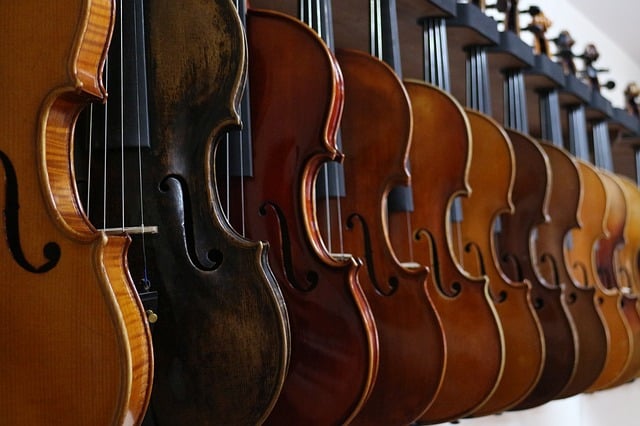 Image via pixabay.com
Image via pixabay.com
The following article adapts and discusses concepts developed by Gerald Klickstein that are published on The Musician's Way Blog and in his book, The Musician's Way.
A day in the life of a musician involves a lot of repetition. Whether it's playing the same city over and over again, promoting your music to your fans every night, or playing the same songs every day in practice, it's impossible to shake repetition.
When one thinks of repetition, a feeling of pleasure isn't usually associated with the word. Instead, we tend to think of painstaking boredom. But it's a necessary evil; we need it to sharpen our skills, nail compositions, and become a better performer in general. All musicians have to wade through the grind of repetition, yet how do so many still stay artistic? Fortunately, repetition and artistry can coexist, and there are ways to make repetition much more tolerable.
Strive for excellence
Striving for excellence all the time sounds like something your high school basketball coach would say, but it rings true for music as well. By striving for excellence, repetition won't be a chore, but something to cherish and look forward to.
Constant repetition will eventually create who you are as a musician. If you repeatedly practice poorly, you're going to be a poor musician (in more ways than one). But by making excellence a practice habit, you'll eventually become a living example of that excellence. To do this, you want to try to strive for the best in all possible aspects of music. Whether it's accuracy, rhythm, tone, artistic expression, or just staying focused, you should put equal amounts of excellence in it all.
At first, it might seem challenging and mentally draining. But over time, through the repetition of excellence, you'll eventually embody those traits. Soon, excellence won't be a forced habit, but a natural quality.
Forget mindless repetition
Sometimes playing effortlessly is confused with playing mindlessly. When you see someone who's in "the zone" and playing some difficult piece perfectly, he or she may look "tuned out," but that's hardly the case. You can't just tune out and expect to become a master musician. This takes a little effort in the art of mindful practice.
This isn't the mindfulness of the pseudo-spiritual variety per se, but more so just staying focused. You want every note that squeaks and leaks out of your instrument to drip with accuracy and artistry. To do this, you must start the journey off correctly in the practice room. You need a map – an intricate map that will help you approach a new piece efficiently. This way, you're not just picking up the music and sight-reading off the bat. Sure, you may learn it eventually, but you'll waste far less time with an organized approach to learning.
Take a moment to look ahead at the music and try to get a feel for the piece before even playing it. If you see certain areas that might be confusing to you, sort them out first. Solve any problems as they arise instead of casting them aside for later. Just like in life outside of the practice room, working your way through problems mean a chance to improve.
Just like good habits, repeating bad habits will help them stick in your head, thus making them harder to remove. Embrace mistakes, fix them, don't repeat them, and plan your practice sessions accordingly.
Aim for growth and constantly evaluate
If you really want to get buddy-buddy with repetition, you need to see it as a tool to grow, not to maintain.
Repetition is all about growing as a musician. Yes, a great deal of reinforcement is involved with repetition, but you shouldn't just strive for reinforcement. "Shoot for the moon," as they say, and once you get there, go somewhere further. Each repetition should see some sort of improvement or exploration.
Even if you nailed the song technically, there's always something you could be better at. Perhaps you want to perfect your tone the next time around or make sure your limbs are more relaxed. Whatever it may be, make sure each repetition has significance. This will help you avoid mindless repetition that becomes such a burden for so many musicians.
Aside from aiming for constant growth, you should make sure to evaluate constantly. Evaluating your music will bring a new level of passion to it. This passion will turn boring repetition into a powerful and inspirational piece of music.
You'll find something new to appreciate in the same song every time you listen to it. If you're honest with yourself during these periods of evaluation, you'll find what you don't want with ease, and you'll have a clear path to becoming a true artist.
Get more practice tips:
- 4 Practice Routine Tips to Progress Faster on Your Instrument
- 3 Tiny Tweaks That Will Make You a Much Better Performer
- 4 Ways to Structure Your Practice Time for Maximum Effectiveness
Anthony Cerullo is a nomadic freelance writer and keyboard player. In his spare time, he can be found reading, hiking mountains, and lying in hammocks for extended periods of time.

